Content
Career-Ready Skills. Future-Focused Education.
Today's employers seek professionals with specialized skills to help their organizations grow and innovate. Earning a University of Nebraska–Lincoln digital badge lets you gain these in-demand skills quickly, helping you stand out in a competitive job market. Our high-quality, non-credit badges offer targeted learning in specific skill areas, making it possible to enhance your career without the time commitment of a full degree program. Whether you are looking to advance your skills, change your career trajectory, or enhance your knowledge, UNL's digital badges are your key to personal and professional growth.
What is a Digital Badge?
A digital badge is a verified, online credential that showcases your expertise in a specialized area, allowing you to display your accomplishments to employers, colleagues, and your professional network. At UNL, coursework to otain a digital badge may be online, hybrid, or in-person. Be sure to read the course description for the method of delivery.
Browse Digital Badges
Nebraska Innovation Studio College of Agricultural Sciences & Natural Resources Nebraska Extension
Center on Children, Families and the Law College of Business
Nebraska Innovation Studio
Drone Pilot Training - Part 107
Ready for takeoff? In just two days, gain FAA Part 107 exam prep and hands-on drone flying experience to launch your commercial drone career.

Coming soon!
Universal Robots CORE Training
Step into the world of collaborative robotics with hands-on programming, troubleshooting, and optimization using Universal Robots technology.
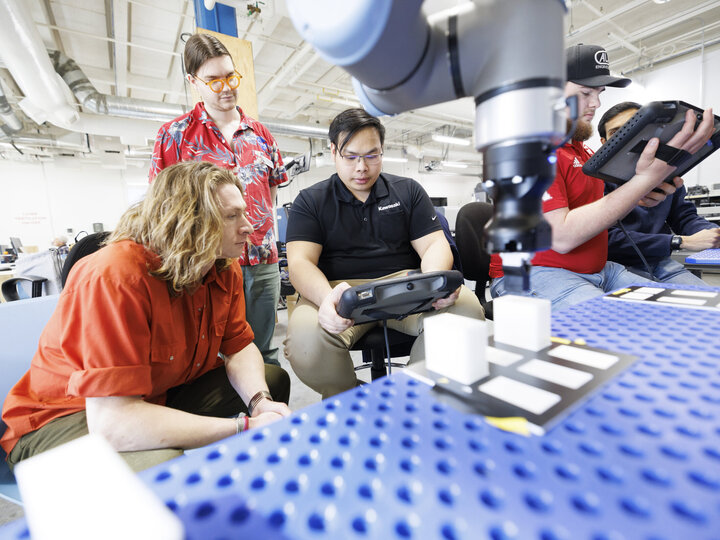
Collaborative Robot Welding
Discover the future of automated welding with precision fixture design and real-world collaborative robot projects.

Intro to Drones: Recreational Pilots
Learn safe flying practices, FAA-recognized rules, and beginner skills to take your drone adventures to new heights.
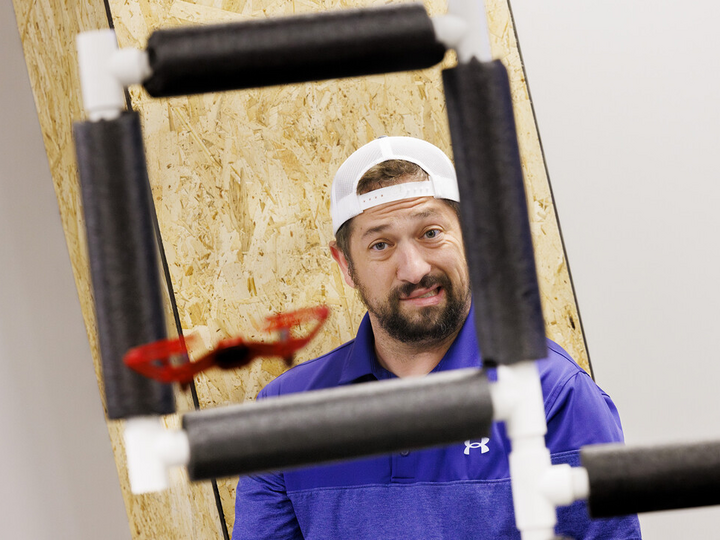
3D Printing
Explore the world of additive manufacturing with FDM, SLA, and SLS technologies while creating your own 3D-printed designs.

College of Agricultural Sciences and Natural Resources
Hygienic Design in Food Manufacturing
Food Science and Technology, The Food Processing Center
Transform your approach to food safety with an eight-week deep dive into hygienic design principles and their real-world applications.

InFORM: Principles of Microbial Food Safety and Quality
Food Science and Technology, The Food Processing Center
Build a quick but powerful foundation in food microbiology and hazard identification in just 4–6 engaging hours.

Recipe to Reality Seminar
Food Science and Technology, The Food Processing Center
Take your food product idea from kitchen concept to marketplace with this fast-paced, one-day startup seminar.

Better Process Control School
Food Science and Technology, The Food Processing Center
Gain vital training in thermal processing and pathogen control with instruction rooted in real food safety science.
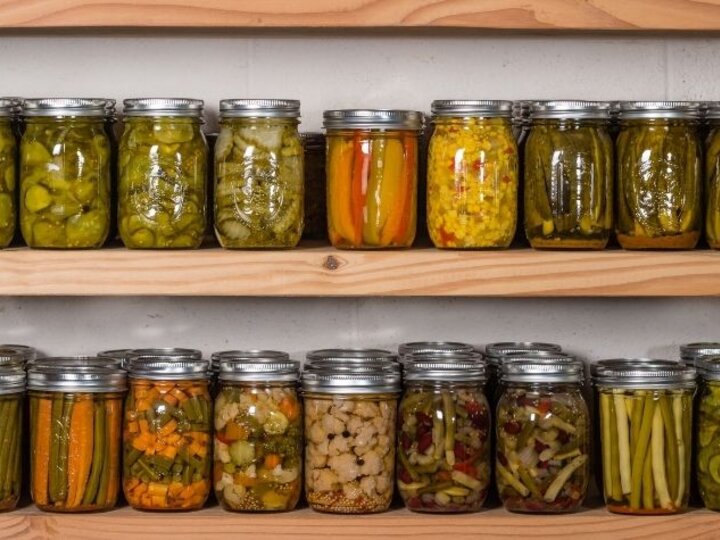
FARRP Effective Food Allergen Management Workshop
Food Science and Technology, The Food Processing Center
Learn to identify, assess, and control allergens in food manufacturing with practical strategies you can apply immediately.

Better Process Control School for Acidified Foods-Online
Food Science and Technology, The Food Processing Center
Get FDA-recognized training in acidified food processing during two intensive days designed for busy professionals.

FARRP Food Allergen Fundamentals
Food Science and Technology, The Food Processing Center
Strengthen your understanding of allergen labeling, regulations, and detection methods with this essential overview.

Micropipette Mastery
Daugherty Water for Food Global Institute
Develop pinpoint accuracy in liquid handling with guided lab training and precision-testing exercises.
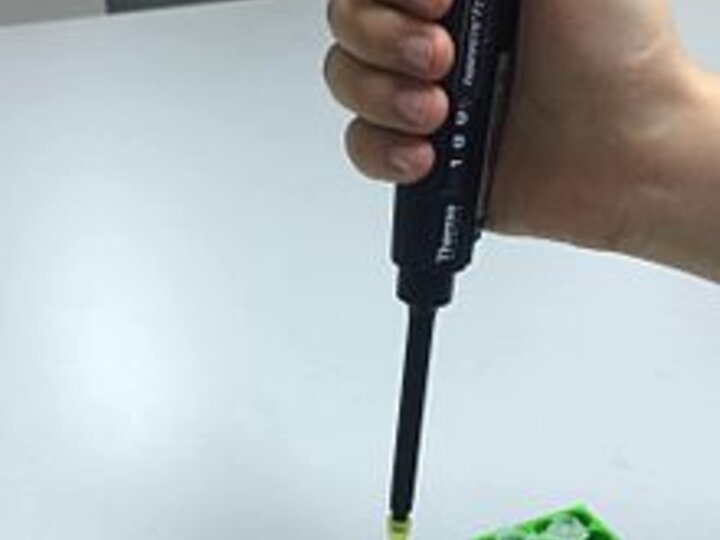
Regenerative Agriculture Learning Hub
Coming soon!
Discover how climate-smart farming and regenerative strategies can shape the future of sustainable agriculture.
Introduction to Plant Breeding
Agronomy & Horticulture
Discover how genetics and breeding goals shape the crops we depend on in this interactive introduction to plant breeding.

Introduction to Hybrid Breeding: Understanding the Process
Agronomy & Horticulture
Step through the stages of hybrid breeding, from developing parent lines to commercialization strategies.

Genetic Engineering in Plants
Agronomy & Horticulture
Unpack the science behind genetically engineered crops and the tools shaping modern agriculture.

Plant Genetics
Agronomy & Horticulture
Explore how heredity and genetic variation drive the traits that define our food and fiber plants.

Crop-Weed Systems Management
Agronomy & Horticulture
Tackle weed control with integrated strategies that balance herbicides, sustainability, and crop health.

Disease Resistance Breeding: Phytophthora Resistance in Soybean Case Study
Agronomy & Horticulture
Dive into a soybean case study to see how single-gene resistance is applied against Phytophthora.
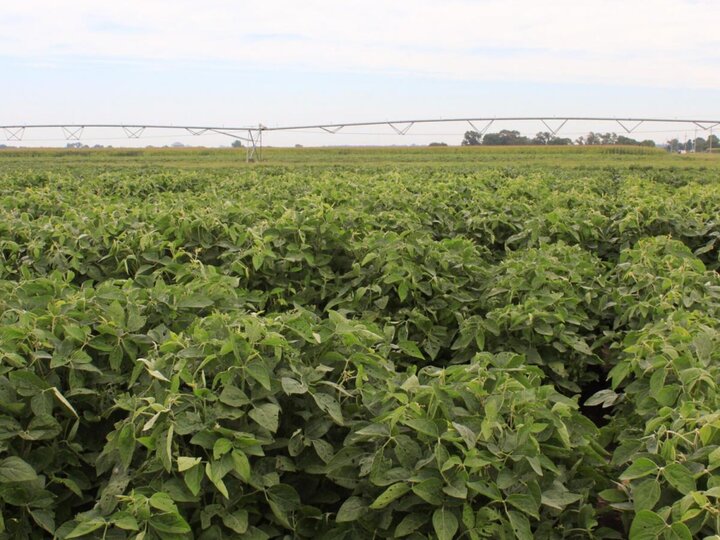
Disease Resistance Breeding: Transgenic Strategies
Agronomy & Horticulture
Explore transgenic approaches to breeding disease-resistant crops in this forward-looking module.

Genetic Principles: Molecular Genetic Engineering & DNA Testing Methods
Agronomy & Horticulture
Examine how molecular tools and DNA testing are transforming plant and animal improvement.

Genetic Principles: Chromosomes and Genes
Agronomy & Horticulture
Build a clear understanding of chromosomes, genes, and the mechanics of heredity.

Plant Breeding for Non-Plant Breeders: An Introduction to Basic Concepts
Agronomy & Horticulture
Unlock the essentials of plant breeding in a clear, approachable course designed for professionals outside plant science.
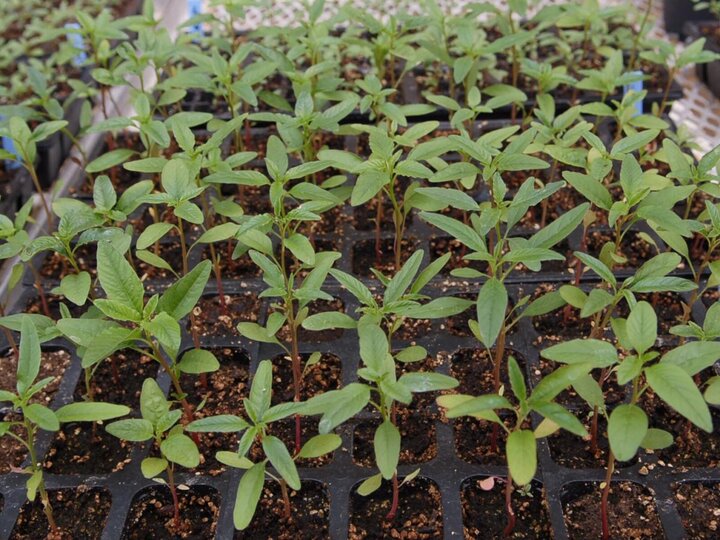
Genetic Principles: Inheritance in Families and Populations
Agronomy & Horticulture
Explore how family and population genetics inform modern agricultural practices.

Nebraska LEAD
Strengthen your leadership, communication, and global perspective through Nebraska’s premier agricultural leadership program.
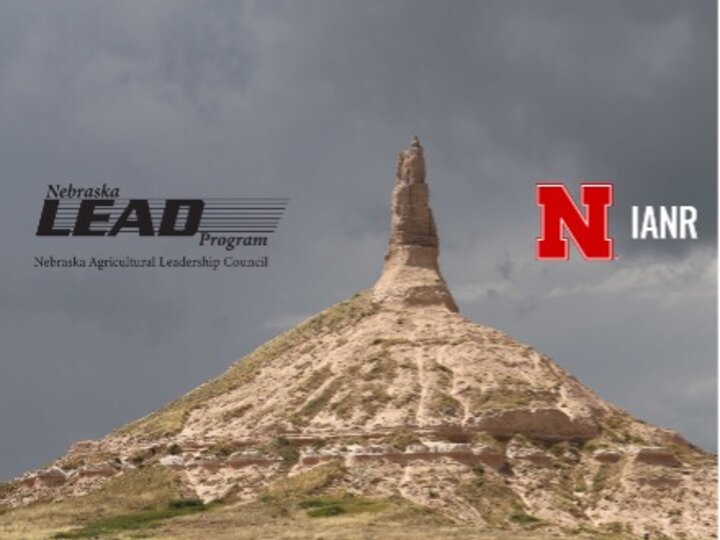
Forensic Entomology: The Death of Dannie Bee
Coming Soon!
Solve a mystery crime scene through insect evidence in an immersive alternate reality game.
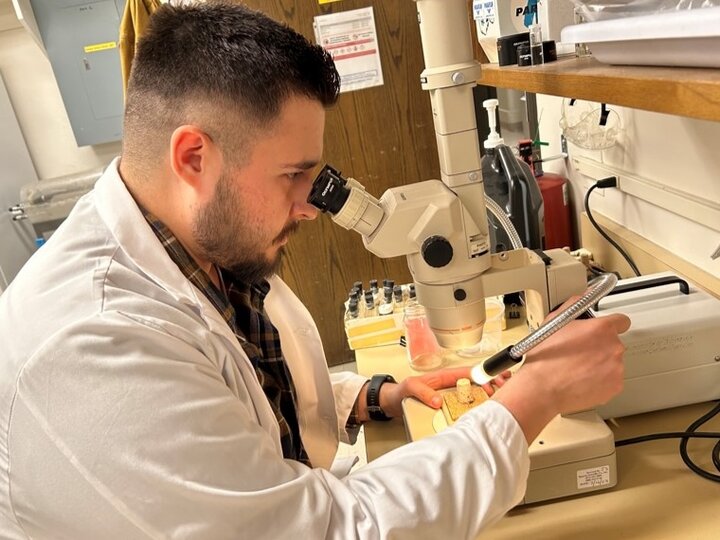
Bacteria as Friends and Foes
Plant Pathology
Journey into the microbial world to discover how bacteria act as both life-sustaining allies and dangerous threats.

Prime Education: Introduction to Butchery and Meat Processing
Sharpen your skills in meat processing with a unique blend of interactive online learning and hands-on butchery training.
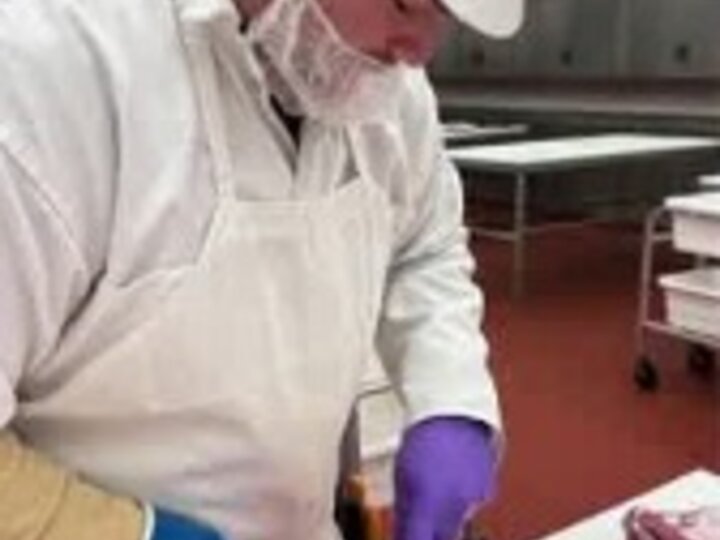
Nebraska Extension
Quicken for Farm & Ranch Financial Record Keeping
Use Quicken Deluxe in hands-on exercises to manage financial records designed for real farm operations.

Cottage Food Law
Navigate Nebraska’s Cottage Food Law (LB262) to understand exactly what, where, and how you can sell your homemade goods legally.

Practical Cattle Handling
Practice low-stress techniques in a live cattle-handling setting to improve safety and efficiency.
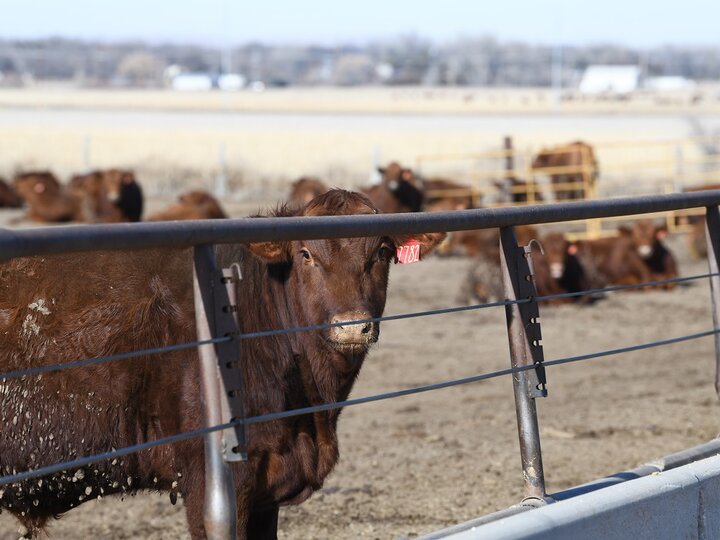
USDA FSA Borrower Training
This five-part, 15-hour program is designed to assist beginning farmers and ranchers gain knowledge, address problems or operational weaknesses, and plan for financial success.
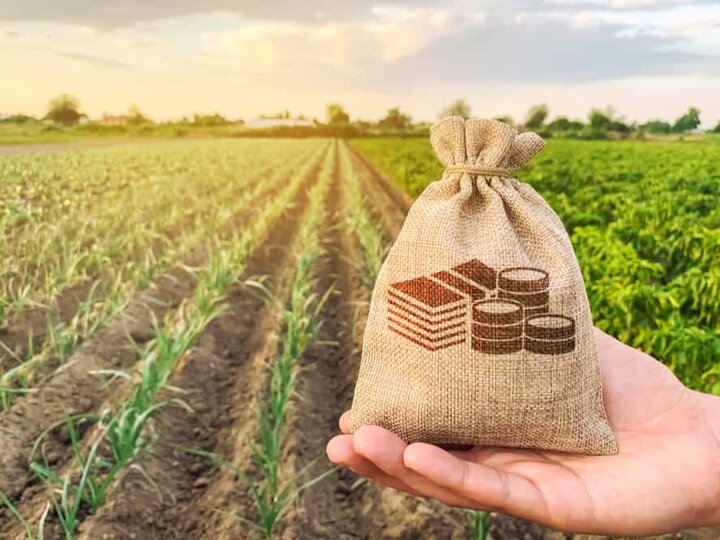
Know Your Numbers, Know Your Options
This course is designed to help farmers and ranchers understand their current financial position and how big decisions like large purchases, new leases or changes in production will affect their bottom line. Strengthen your decision-making and lender conversations by analyzing real farm financials.

Public Participation and Engagement
Hone your skills in civic dialogue and community planning with flexible, interactive training.

NDA Beginning Farmer Tax Credit Training
Navigate farm finance, risk management, and goal-setting with guidance tailored for beginning farmers.

Agri-Essentials: Women in Agriculture Learning Community
Agri-Essentials is part of Nebraska Women in Agriculture’s ongoing efforts to provide women in agriculture with the knowledge, skills, and network they need to succeed. Grow your confidence, leadership, and business savvy in a supportive community of women in agriculture.
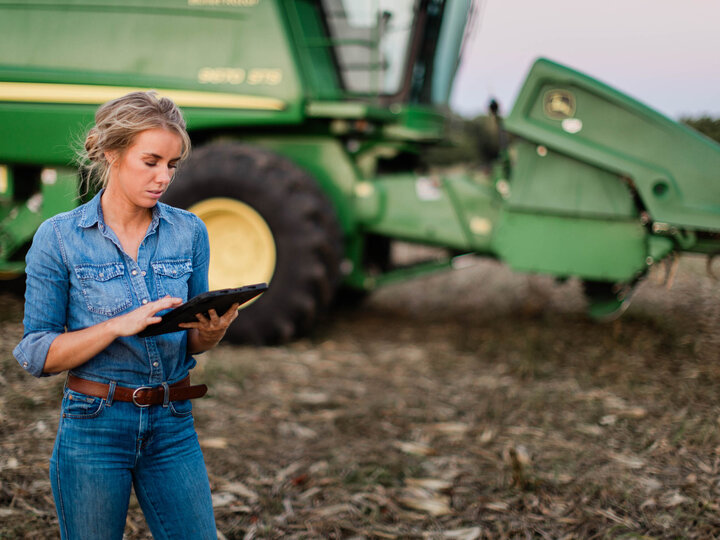
Private and Commercial Applicator Training/Chemigation Training (Nebraska)
Stay safe and compliant with pesticide and chemigation regulations through expert-led training with the Pesticide Safety Education Program (PSEP) at the University of Nebraska-Lincoln, in concert with Extension Specialists, Extension Educators, and other collaborators.
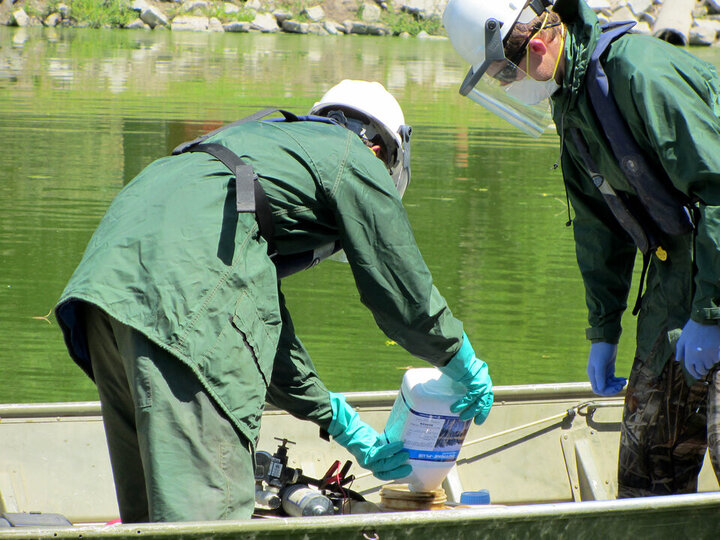
Fit and Healthy Kids: What You Need to Know about Food Allergies
Learn the essentials of managing food allergies and safe practices in childcare settings.
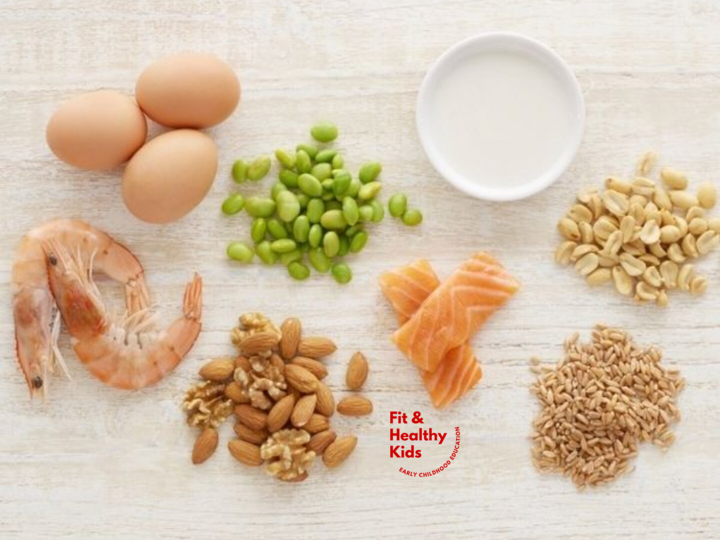
Fit & Healthy Kids: Yogapalooza: Learning Strategies to Immediately Incorporate Yoga and Mindfulness into Your Early Childhood Classroom
Inspire kids with fun, mindful yoga activities that support health and learning.

Fit and Healthy Kids: Yoga for Young Children's Health and Well-Being
Bring movement and mindfulness into early childhood education with playful yoga strategies.

Fit and Healthy Kids: Tinkering with STEM
Spark curiosity through trial, error, and creative problem-solving in hands-on STEM play.
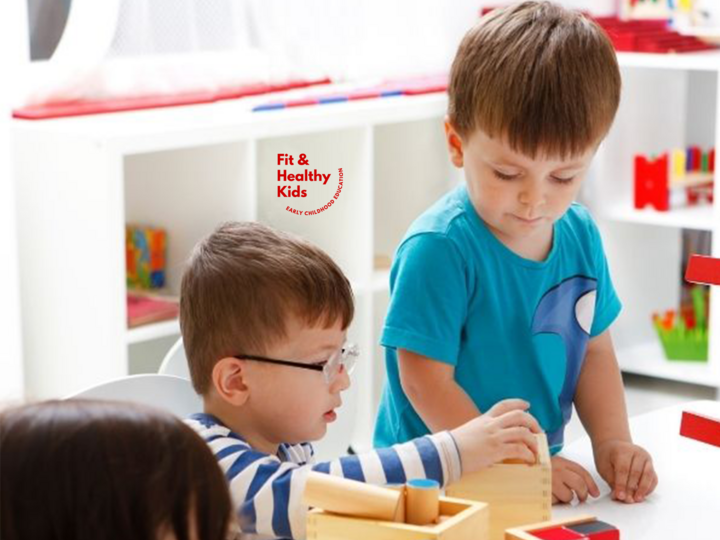
Fit and Healthy Kids: The Importance of Sleep
Discover how sleep impacts child health and learning‚ and how to promote healthy routines.

Fit and Healthy Kids: Whole Grains for Health-Organic, Stoneground, Multigrain, Oh My!
Demystify grain labels and explore fun ways to add whole grains to everyday meals.
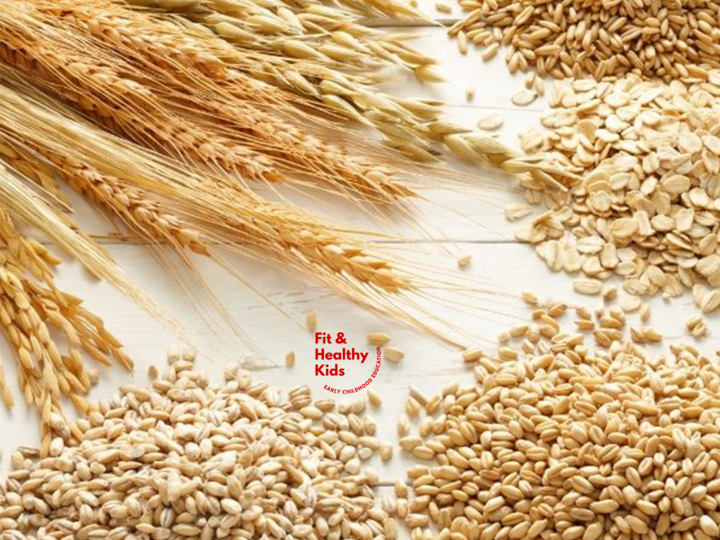
Fit and Healthy Kids: One Norovirus, with a side of Salmonella, Please! Preparing Food Safety in Child Care Facilities
Sharpen your childcare food safety skills to reduce the risks of common foodborne illnesses.

Fit and Healthy Kids: Strategies for Young Children with Autism in Childcare Settings
Learn inclusive practices to better support children with autism in early care settings.

Fit and Healthy Kids: Introduction to Autism in Childcare Settings
Gain a foundational understanding of autism and how to provide meaningful early support.

Fit and Healthy Kids: Mind Full or Mindful-Who are You?
Explore mindfulness as a powerful tool for stress reduction and presence in teaching and caregiving.

Fit and Healthy Kids: Music from the Heart
Harness the power of everyday music to boost children’s language, social, and emotional growth.

Fit and Healthy Kids: Caregiver-Child Math Engagement Adds Up
Transform daily routines into playful math-learning opportunities for young children.

Fit and Healthy Kids: Blocks BUILDing Math Talk in Early Childhood Setting
Use block play to encourage math conversations and problem-solving in early learners.

Fit and Healthy Kids: Beyond Challenging Behaviors
Uncover the reasons behind children's behaviors and apply positive guidance techniques.

From Insight to Action: Using Data for Community Impact
Turn data into actionable insights that drive real change in your community projects.
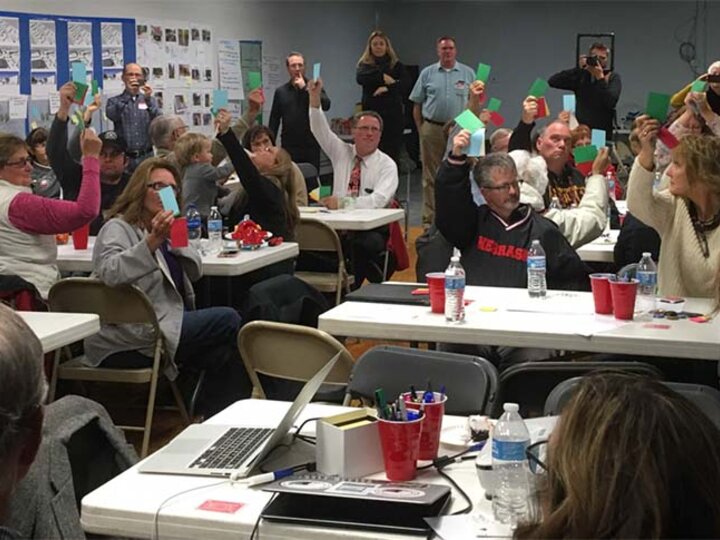
Fit & Healthy Kids: The Importance of Process Art Experiences
Support creativity and development through open-ended, child-centered art activities.

Fit & Healthy Kids: Guidance and Discipline-Mistaken Goals of Misbehaviors
Recognize children's underlying motives and respond with effective, respectful strategies.
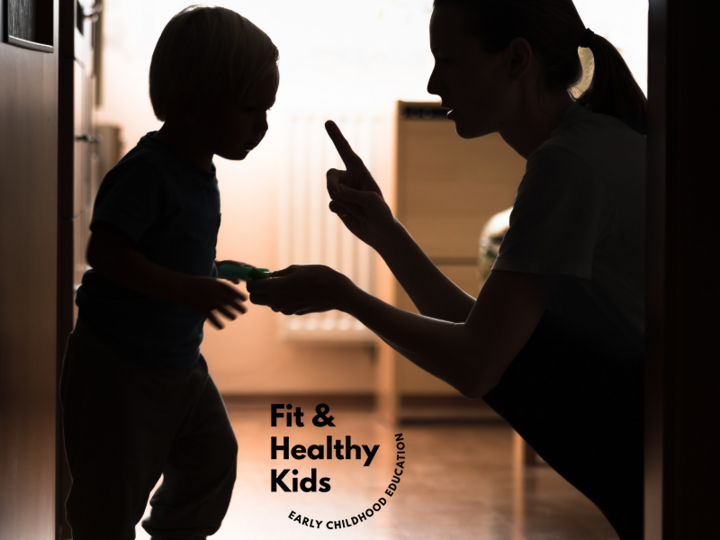
Fit & Healthy Kids: Early Math Skills for Infants and Toddlers
Encourage early numeracy with playful activities designed for the youngest learners.

Fit & Healthy Kids: Eat Healthy, Be Active
Learn practical ways to promote healthy eating and active lifestyles in preschool settings.
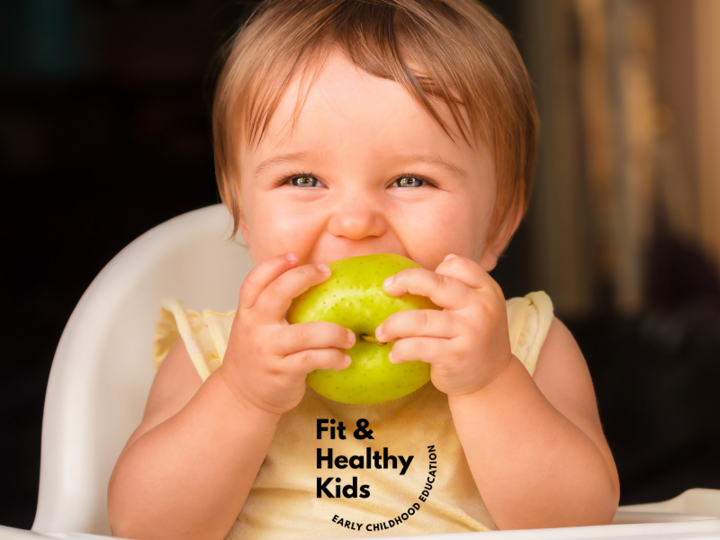
Fit & Healthy Kids: The Importance and AWESOMENESS of Nature in Early Childhood
Bring the benefits of outdoor play into children's lives with research-backed strategies.

Fit & Healthy Kids: Feeding with the Fuss
Transform mealtimes into positive, stress-free experiences with practical strategies for feeding young children.
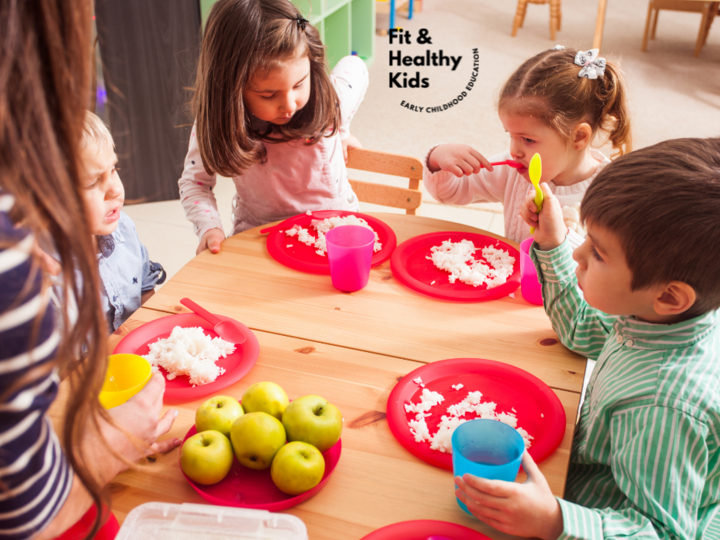
Fit & Healthy Kids: Inspiring Teachers to Strive for Excellence in their Approach to Curriculum from a New Zealand Perspective
Discover how New Zealand’s innovative approach to early childhood curriculum can inspire excellence in your own teaching practice.

Fit & Healthy Kids: Authentic Documentation Using the Floor Book
Explore how floor books can deepen reflection, strengthen relationships, and showcase children’s authentic learning.

Fit & Healthy Kids: Mindfulness for Kids-It's that IMPORTANT!
Learn how mindfulness empowers kids to manage stress, strengthen attention, and thrive in every environment.

Precision Education in Spray Technologies (PEST) Academy
Master the latest spray technologies and precision application techniques to boost efficiency, safety, and crop health.
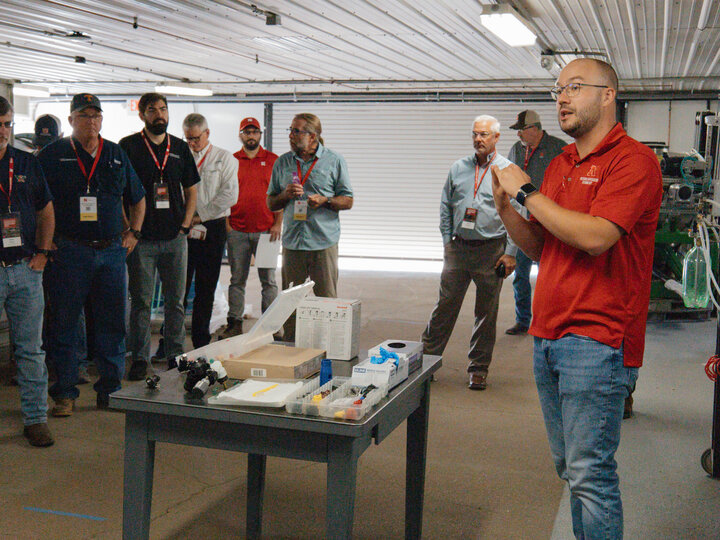
Fit and Healthy Kids: The Early Childhood Asian Culture and Its Similarities' to the US
Coming soon!
Broaden your perspective with a look at the shared values and practices in early childhood education across Asia and the U.S.

Fit and Healthy Kids: Serve and Return: Play with Babies Promotes their Early Learning
Coming soon!
Turn everyday moments into learning opportunities with serve-and-return play that sparks babies’ development.

Fit and Healthy Kids: Blocks as a Learning Tool
Coming soon!
Explore the ways block play encourages rich conversations, critical thinking, and imaginative exploration in young children.

Fit and Healthy Kids: Let Them Make a Mess: Play Experiences
Coming soon!
Turn spills and splatters into meaningful learning moments with play experiences that encourage curiosity and development.

Fit and Healthy Kids: Supporting Breastfeeding in Early Care
Create supportive, inclusive environments for breastfeeding families in childcare programs.

Fit and Healthy Kids: Creative Cooking With Young Children
Engage kids in fun cooking experiences that build healthy habits and learning skills.

Fit and Healthy Kids: Strategies to Enhance Transitions and Routines
Make daily transitions smoother with strategies that support children's growth and independence.

Fit and Healthy Kids: Storybooks that Teach
Use engaging children's books to spark lessons, connections, and joy in early learning.

Fit and Healthy Kids: Let's Go Outside
Transform outdoor time into a rich extension of the classroom with purposeful activities.

Fit and Healthy Kids: Neurological features of Autism Spectrum Disorder
Deepen your understanding of autism's neurological traits and evidence-based supports.

Fit and Healthy Kids: Helping Children Flourish and Grow Amidst Trauma
See how caregivers and educators can empower children to grow stronger and healthier amidst life’s challenges.

Fit and Healthy Kids: Practicing Self Care: Foundational to Caring for Others
Coming soon!
Explore how self-care practices build resilience, balance, and energy for those who care for young learners.

Fit and Healthy Kids: Water Lessons for Preschoolers
Coming soon!
Turn simple water play into meaningful lessons on safety, exploration, and development for young children.

Fit and Healthy Kids: Building Literacy with Play and Technology
Coming soon!
Blend fun, hands-on play with digital tools to create engaging literacy-building experiences.

Fit and Healthy Kids: Be in the Moment with Infants
Coming soon!
See how responsive, mindful interactions with infants build trust, security, and lifelong learning foundations.

Fit and Healthy Kids: Supporting Family Engagement and Connections
Coming soon!
Learn strategies to build meaningful family connections that enhance engagement inside and outside the classroom.

Fit and Healthy Kids: Early Childhood Screenings: See, Hear, Do and Smile
Coming soon!
Discover the importance of early screenings to catch concerns early and support healthy growth and learning.

Fit and Healthy Kids: The Importance of Sensory Play
Coming soon!
Discover how sensory play sparks brain development, builds skills, and supports learning through hands-on exploration.

Fit and Healthy Kids: Growing Up Healthy with Fruits and Vegetables
Coming soon!
Discover fun, practical ways to help children enjoy fruits and vegetables while building lifelong healthy habits.

Nature Based Learning in Early Childhood
Coming soon!
Learn strategies to bring the classroom outdoors and make nature a daily part of early childhood education.
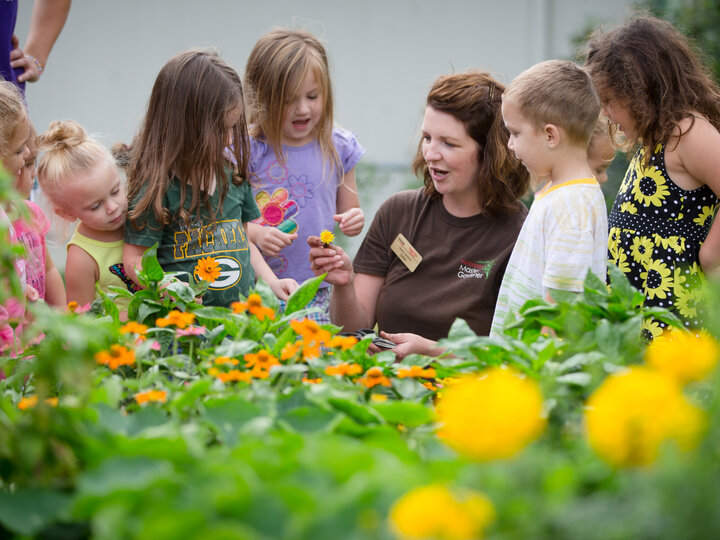
AI Foundations and Applications: A Youth Teaching Guide
Empower the next generation: gain confidence and hands-on tools to introduce middle school learners to AI through playful activities, guided discussion, and real-world relevance—all without needing a technical background.
Enrollment can be done individually for Levels I, II or III or bundle altogether.
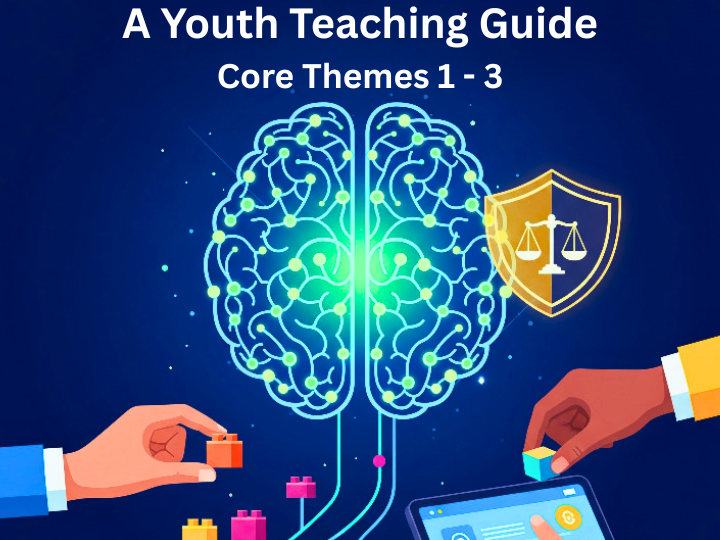
LLCs for Nebraska Farms and Ranches
Learn how to form and manage an LLC tailored to the needs of Nebraska farms and ranches. This self-paced course delivers practical guidance, expert insights, and useful tools to help producers strengthen their business structure and protect their operations.

Center on Children, Families, and the Law
Reflective Practice FAN Training Program
Transform your daily work with practical strategies for reflective practice that foster empathy, clarity, and effectiveness.

College of Business
Understanding Nonprofit Financial Statements
Build confidence in reading and explaining financial statements to boards, funders, and stakeholders to guide smarter strategy.
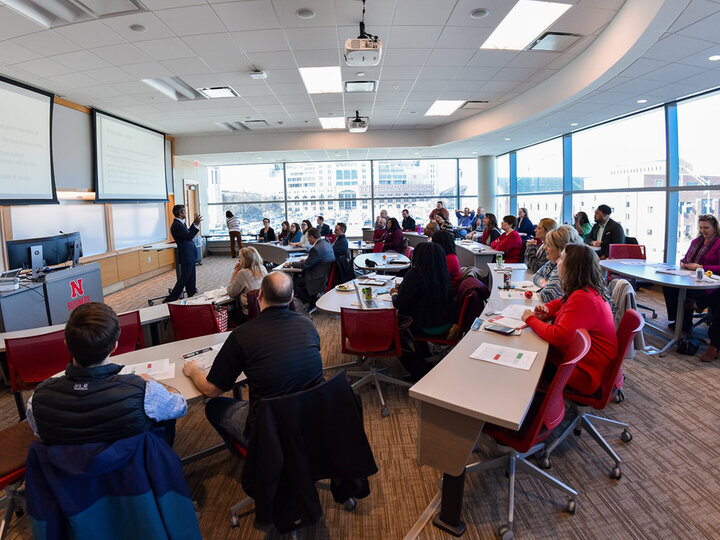
Nebraska Nonprofit Management Institute: Strategic Financial Leadership
Gain tools to lead financial strategy at the executive level, balancing mission impact with fiscal responsibility and long-term sustainability.

Nebraska Nonprofit Management Institute: Budgets and Resource Allocation
Learn how to design and manage nonprofit budgets that maximize resources, support strategic goals, and ensure accountability.

Nebraska Nonprofit Management Institute: Financial Analysis and Cost Accounting
Strengthen your ability to interpret financial data, analyze costs, and make informed decisions that drive organizational performance.

Nebraska Nonprofit Management Institute: Strategic Communications and Resource Development
Develop executive-level strategies for telling your organization’s story, cultivating donor relationships, and expanding resources.

Partner with UNL
The University of Nebraska-Lincoln partners with businesses, civic leaders, and nonprofits to provide a range of public programs that enhance quality of life. Let's discuss how UNL can help you achieve your learning objectives. Send us an email.
Whether you are looking to advance your skills, change your career trajectory, or enhance your knowledge, UNL's digital badges are your key to personal and professional growth.
Tuition benefits through the University of Nebraska Employee and Dependent Scholarship Program cannot be applied to micro-credential courses.
